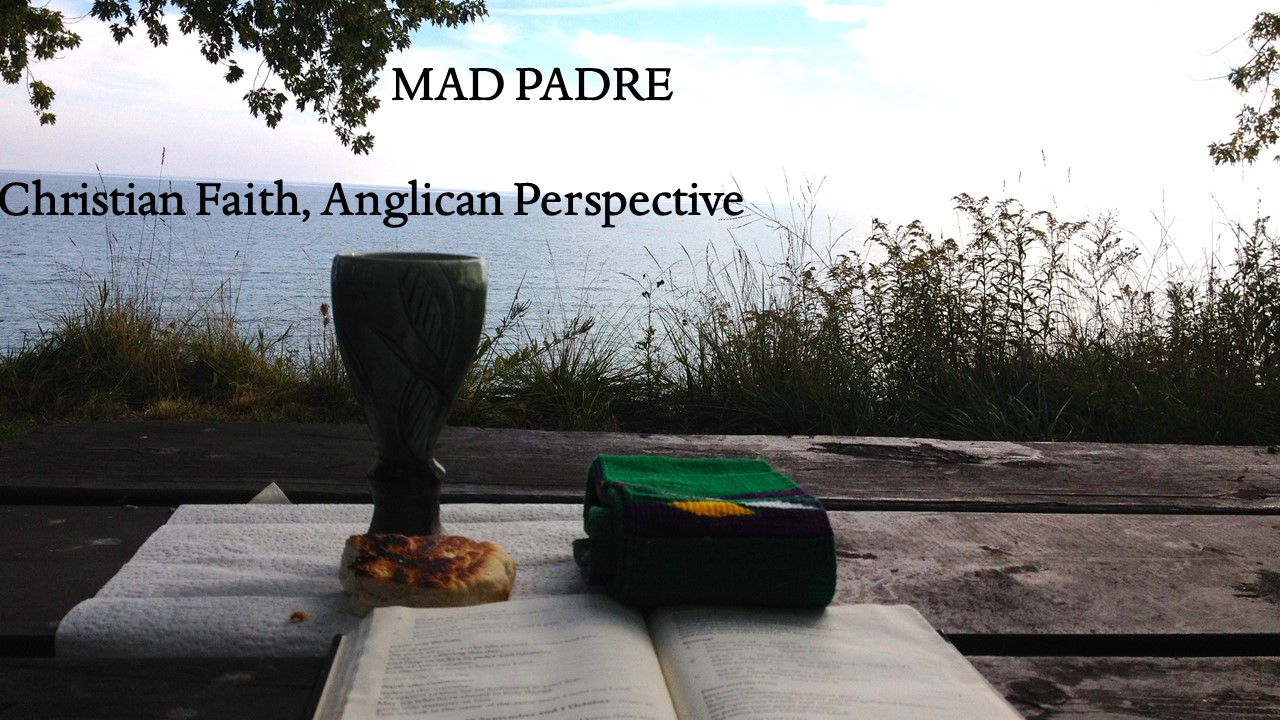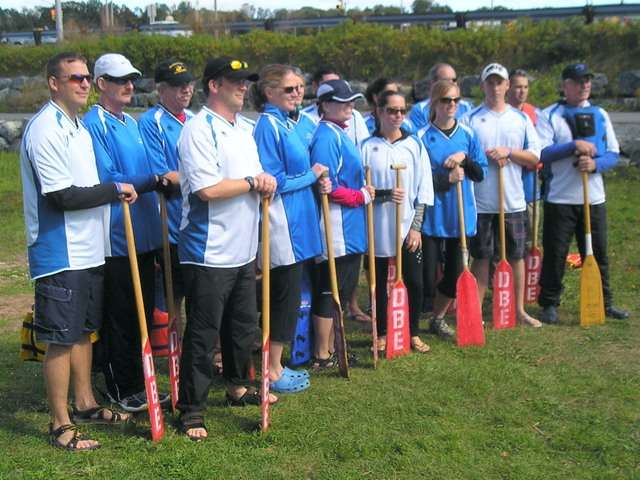Preached at St. Mark's Protestant Chapel, 14 Wing, Greenwood
18th Sunday After Pentecost, Lectionary Year
Genesis 2:18-24, Psalm 8. Hebrews 1:1-4; 2:5-12, Mark 10:2-16
“But from the beginning of creation, ‘God made them male and female.’ For this reason a man shall leave his father and mother and be joined to his wife, and the two shall become one flesh.’ So they are no longer two, but one flesh. Therefore what God has joined together, let no one separate.” (Mark 10:6-9).He was out of uniform when he appeared in the door of my office, but I could tell his was military. He was bulky and strong, but he looked confused and defeated, and as soon as he sat down his eyes welled up with tears. After I invited him to talk, he said “Padre, I got home last night and she was gone”. As he continued to tell his story, I heard much that was familiar. It wasn’t the first marriage. It may even have been a common-law relationship. There was a three-year old daughter. It had been strained by his problems with anger and by his addiction to anger. At some point the man’s wife had reached her breaking point and had moved out, taking the daughter and going to live with her parents. If this man didn’t realize what he had before, now he knew what he had lost.
Today’s gospel reading from St. Mark spoke to me in the midst of a week when my work and my cases as a chaplain all seemed to point to the frailty and to the value of marriage. Now marriage is not a subject that a cautious preacher really wants to venture into. He or she knows that any congregation holds its share of people who have been severely burned by our attempts to form this most permanent and most difficult of human relationships. Not all church-going couples are happy or healthy. They may be struggling with old or new scars from addiction, infidelity, or cruelty. And not all churchgoers are couples. Look out at the pews and you will probably see the divorced, the abandoned, and the abused. The people who hang around churches on a regular basis know that sometimes, perhaps too often, marriage isn’t all it’s cracked up to be.
Then there are the people who don’t go to churches much. Ironically one of the few times you see them in church is at weddings. I remember one priest friend, who worked in a beautiful church, had a wealthy middle aged man walk up to him after the service. “Nice place you got here”, he said, looking around. “What do you do here the rest of the time?” These folks come to see their children and their friends children launched into adulthood as hopeful, happy couples. They may hear the words “for better or for worse”, “in sickness or in health”, and “till death to us part”, but I doubt that many take them seriously. These words are part of the ceremony, part of the schtick, like the limo and the tossing of the garter. These folks know that half of marriages end in divorces. They live in a world of broken and blended families, serial monogamy, same-sex relationships, and other constantly evolving experiments in human living. I heard a well-known playwright say on the radio Friday that people today have no idea what marriage and the family are any more, and that we as a society are basically making it up as we go along.
Today, as so often in the life of the church, we hear God’s word speak to us in clear and challenging terms. I didn’t plan today’s readings – I am usually a lectionary preacher, which means that I follow the scheduled readings of the mainline Christian churches for each Sunday. Often these readings force themselves into my thoughts in totally unexpected ways. This week, I am somewhat dazed after walking with many families and individuals like the soldier in my opening story, and yet I must make sense of what our Lord says in today’s gospel about marriage. The words are certainly familiar to us from the traditional marriage service, especially “Therefore what God has joined together, let no one separate” – I’ve read themselves before more than a few lovely and fresh-faced young couples.
In Jesus’ day, it was however very easy for a man to separate from his wife. According to Jewish law, as found for example in Deuteronomy 24:14, a husband could divorce his wife if disliked her or found “something objectionable about her”. In a society where few women had any security or status outside of marriage, divorce would have been disastrous. Given the sympathy and sensitivity that Jesus shows towards women in the gospels, it’s not surprising that he should this use of Jewish law to be sinful. As he tells the Pharisees, this law was given to them because of their “hardness of heart” and it has done nothing to make them less hard or less sinful. Therefore Jesus points to a higher law, the law of his father’s creation, as we heard in our first reading from the book Genesis. Quoting Genesis, Jesus says that the Father’s design for humanity was that men and women were intended to be together:
And the rib that the Lord God had taken from the man he made into a woman and brought her to the man. Then the man said, “This at last is bone of my bone and flesh of my flesh; this one shall be called Woman, for out of Man this one was taken.” Therefore a Man leaves his father and his mother, and clings to his wife, and they become one flesh”. (Gen 2:22-24)
As I said, these words are echoed in the older marriage ceremonies, but outside the ceremony, in the cold light of day, most people in our society would not take them seriously for a minute. Atheists would say that the idea of God as a creator in Genesis is absurd, since science teaches us that we evolved. Feminists would say that the idea of women being created from man has been used by the church for thousands of years to keep women in second-class status. Gay rights advocates would say this scripture does not recognize the reality of same-sex attraction, which may even be genetic. Finally, those who have experienced abuse in marriage would say that the Church has long erred in pressuring abused spouses to stay in marriage because Jesus spoke out against divorce.
These are all powerful and persuasive arguments, and yet we need to think hard about what Jesus is saying when he points to the story of creation (indeed, we need to think hard about everything Jesus says, but that’s another matter). Let’s take stock for a moment. We’re Christians. As Christians we believe that Jesus is the son of God the Father, who created us. I would argue that it doesn’t matter how you believe in creation. You can believe that God created the earth in seven days as Genesis describes, or you can believe that the creation story in Genesis is a metaphor for an evolutionary process that began billions of years ago with the Big Bang. For me, all that matters is that you believe that God created us, that it didn’t all happen by accident, that it’s not all pointless. God created us in his image, to be in relationship with him, and for a purpose that will be fully revealed to us in time.
This summer Kay and I went to a place called Joggins here in Nova Scotia, home of the world-famous fossil cliffs and fossil museum. We met a tour guide, a young scientist who couldn’t accept the idea of God as creator. Standing beside the fossilised remains of a three hundred million year old tree, he told us that either you believe in the science of evolution, or you believed in a Jewish-Christian fairy tale about the creator God.
 Fossilised tree trunk, Joggins, NS
Fossilised tree trunk, Joggins, NSHow sad, I thought, that for such a bright young man the choice was so stark and so clear. Later, standing on another beach at sunset, listening to the eternal chorus of the surf, I thought, where was the creator God three hundred million years ago, when that fossilised tree was part of a steaming jungle, home to lizards that would one day become the primates we are descended from? Where was God six hundred million years ago, in the PreCambrian period, when simple cells were releasing the oxygen that would give earth its atmosphere? Was God thinking then about the humans that would one day inherit this act of creation? Was he thinking about human marriage, and about all the problems that go with it?
That night I became aware of a simple insight. God is patient. God is very patient. He has to be, if he is the creator, and if the fossil record is true, as I believe it is. When St. Paul says in Galatians that “when the fullness of time had come, God sent us his Son” (Gal 4:4), Paul was speaking more than he knew. For a great “fullness of time”, for hundreds of millions of years, God waited for humanity to come along. He prepared the ground for us, and the air, and the water. He began a relationship with humans as described in the Old Testament, and after guiding and teaching his people, he sent his Son to save us, and that Son continues to offer his salvation to us. If the God who created us is this patient, how patient are we?
When that bewildered and hurt young soldier came into my office and told me his wife was gone, I tried to help him see where hope was in his life. He had a wife that hadn’t abandoned him and who wanted him to get better. He had a chain of command that wanted him to get help. It would take work, but if had patience, as others had patience in him, he could get better. Too often I feel that our problems in relationships, as in life, are for want of patience. We want instant results. We seek quick divorces when our spouse disappoints us, or when someone better seems to come along. Please note that I’m not arguing that one should patiently endure an abusive spouse. I think some marriages need to end, and the church I think understands this. But we also need to remember that when Paul spoke of how the greatest virtues are faith, hope and love in 1 Corinthians 13 (a passage often heard at weddings, by the way), he was also speaking about patience. I don’t know of any meaningful kind of faith, hope, or love that doesn’t require patience. Faith, hope and love are after all the opposite of instant gratification. Faith, hope and love require that we dig deep and trust God at those points when, in our marriages, and in our lives, when all seems sad and pointless.
God’s creation is, I think, a work in progress. St. Paul says that “the creation itself will be set free from its bondage to decay and will obtain the freedom of the glory of the children of God” (Romans 8:21). God in Christ is continuing the work of creation, shaping it and making it into a better place. That’s why, I think, scripture so often refers to Christ as the one who goes ahead of us, continuing to reshape and redeem the world (example, Hebrews 12:2 where Christ is “the perfecter and pioneer”). Those of us who feel called to marriage, which can sometimes be a hard and a disappointing calling, know in our hearts, even when we fail at it, that marriage still has wonderful potential. That’s why divorce and failure in marriage hurt so much, I think, like a miniature fall from Eden. When Christ forbade the Pharisees the convenience of the quick divorce, he was reminding them that God created marriage so that we might flourish in God’s creation, creating children and creating new life and new possibilities as husband and wife, a new creation. So I think of that young soldier who came to my office, or I think of a young military wife I know whose preparing to welcome her broken husband home from overseas, and I want to tell them – don’t give up. Don’t lose hope, or faith, or patience. God’s work of creation isn’t finished yet. We are part of a wonderful work in progress, and God has not given up on us. Amen.


.jpg)




















